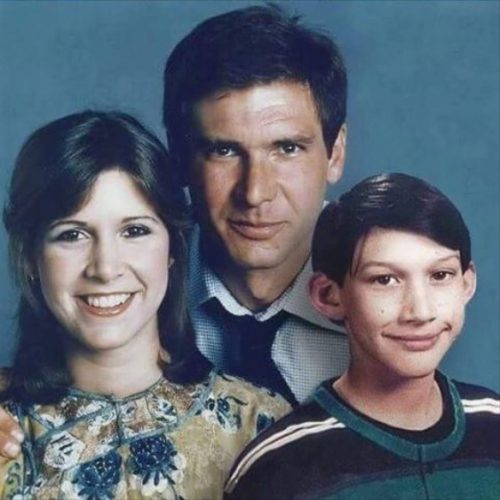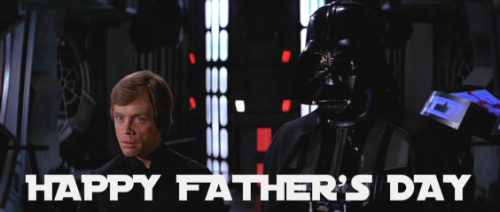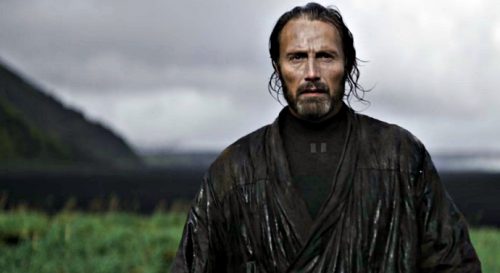
Bust out your bagel-hair earmuffs and blast the John Williams! The latest installment of the Star Wars Universe, Rogue One, blasted its way into theaters this weekend. On the podcast last year, I noted my disappointment with Ep. VII, particularly derivative plot and narrative callbacks. Rogue One was the droid I was looking for. A standalone entry to the Star Wars Universe, the movie tells the story of how Princess Leia got those super-important Death Star plans back in 1977. It needed about three more minutes of character development, and a few of the CGI characters were a bit off, but my goodness, that third act is some beautiful movie making! Ian Olson has a full scale review coming, so for now, I thought I’d simply make note of one of the more Mbird-centered elements. Spoilers abound, so proceed ahead with caution:
I want to focus in on Rogue One‘s central personality, or at least its main plot driver, Galen Erso. Though Mads Mikkelson’s character only gets a few minutes of screen time, he’s not only the key to the plot, but a key development in one of the franchise’s greater themes: fatherhood. The whole Star Wars universe revolves around the dynamic of fatherhood, and you can’t escape it from episodes I-VII:
- In Hope, Luke is sheltered on Tatooine out of fear that he becomes like his (adventurous) father.
- In Empire, Luke wrestles with the fact that he very well could become his (evil) father.
- In Jedi, Luke defeats but also reconciles with his father.
- In Menace, Anakin has no father, and his maternal attachment is a barrier to Jedi training.
- In Clones, Anakin’s attachment to his mother starts him down the dark side.
- In Sith, Anakin embraces the dark side as the Emperor exploits his father wound.
- In Awakens, Han tries to flee from his failings as a father.
 Caught up? Great. Now here’s something unique that Rogue One brings to the Star Wars universe: a loving father figure!
Caught up? Great. Now here’s something unique that Rogue One brings to the Star Wars universe: a loving father figure!
- Galen Erso is a weapons scientist for the Empire. He figures out how to make the Death Star’s giant laser work but flees his position once he discovers the battle station’s intended use. Galen and his wife have a daughter, Jyn, the movie’s protagonist.
- When the Empire tracks Galin down and sends him back to work, he sets in motion a plan to keep his daughter safe by passing her along to guerrilla rebel leader Saw Gerrera.
- Galen returns to work for the Empire, knowing that they’ll figure out how the lasers work without him. So he sabotages the Death Star plans, building a tiny design flaw into the station to make it (relatively) easy to destroy. See Ep. 4.
- Galen sends news of his sabotage to Saw Gerrera and, presumably, his daughter Jyn as well, though he is unaware that Jyn and Saw were separated in battle some years prior. His actions lead directly to the defeat of the Empire.
For the first time, we see a principled, loving, honorable father in the Star Wars universe, a family man who cares deeply for his wife and daughter. This father’s love is the catalyst for the destruction of the Death Star and everything we know and love from the original series.
In fact, the great turning point for Jyn in Rogue One is the moment she receives the hologram from her father. The message turns her from jaded ex-revolutionary with a father wound to a full-fledged, starry-eyed, hope-for-hope’s sake rebel.
Jyn’s transformation affects those around her as well, and it serves as the solution to one of the movie’s major dramatic conflicts. Rogue One is not shy about adding some grey area to the good guy side, with co-lead Cassian Andor shown early on killing a fellow rebel who would have likely been captured by the Empire. It’s what Malcom Gladwell refers to as “moral licensing,” or what you and I might recognize as justifying the means by their ends. The film’s conflict of how dirty the Rebellion needed to play was subtle, but Jyn worked as a foil for “ethical rebelling,” saving a small child caught in a firefight and spurring her companions onward with hope-themed monologues. It’s no surprise that Cassian Andor’s personal turning point came when he could not assassinate, surprise!, Galen Erso, the only decent father figure in the whole Star Wars universe.
It’s the father’s love that crystallizes the rebellion, the father’s love that opens the door to the destruction of the Death Star. This represents a potent addition to the Star Wars Universe, a helpful one for us too. A father’s love makes all the difference in this galaxy, right now, not just a long time ago in a galaxy far away. And sure, that means something in a culture where fatherhood is on the ropes. But it means something more significant to recognize that even death itself might have a design flaw with our Heavenly Father’s fingerprints on it.

COMMENTS
4 responses to “Rogue One: Moral Licensing and a Father’s Love”
Leave a Reply














http://1.bp.blogspot.com/-Lq-5mZ_vRZc/Ua-qA1vEDqI/AAAAAAAAA_s/pcrbuRUsjQc/s1600/jangofett.jpg
Great post! Can’t wait for Ian’s forthcoming treatise on R1.
This is good. Except I’d add that in the real life version the loving father says, “What the heck, I’ll destroy the Death Star for you.” And the people go on living as if the Empire still has the ability to coerce them to obey it.
[…] in 2016, I wrote that a key theme in Rogue One was the power of a father’s love. Alongside Andor’s insistence that quiet, boring, normal people matter and can take down the […]